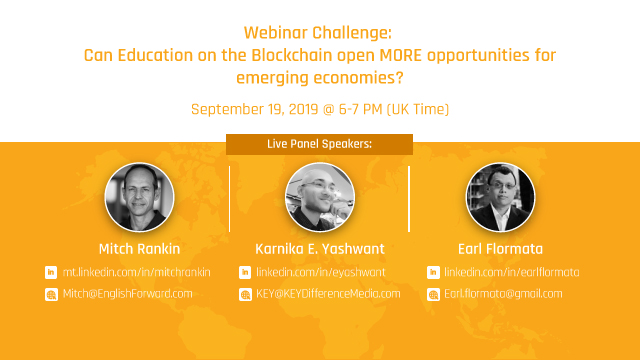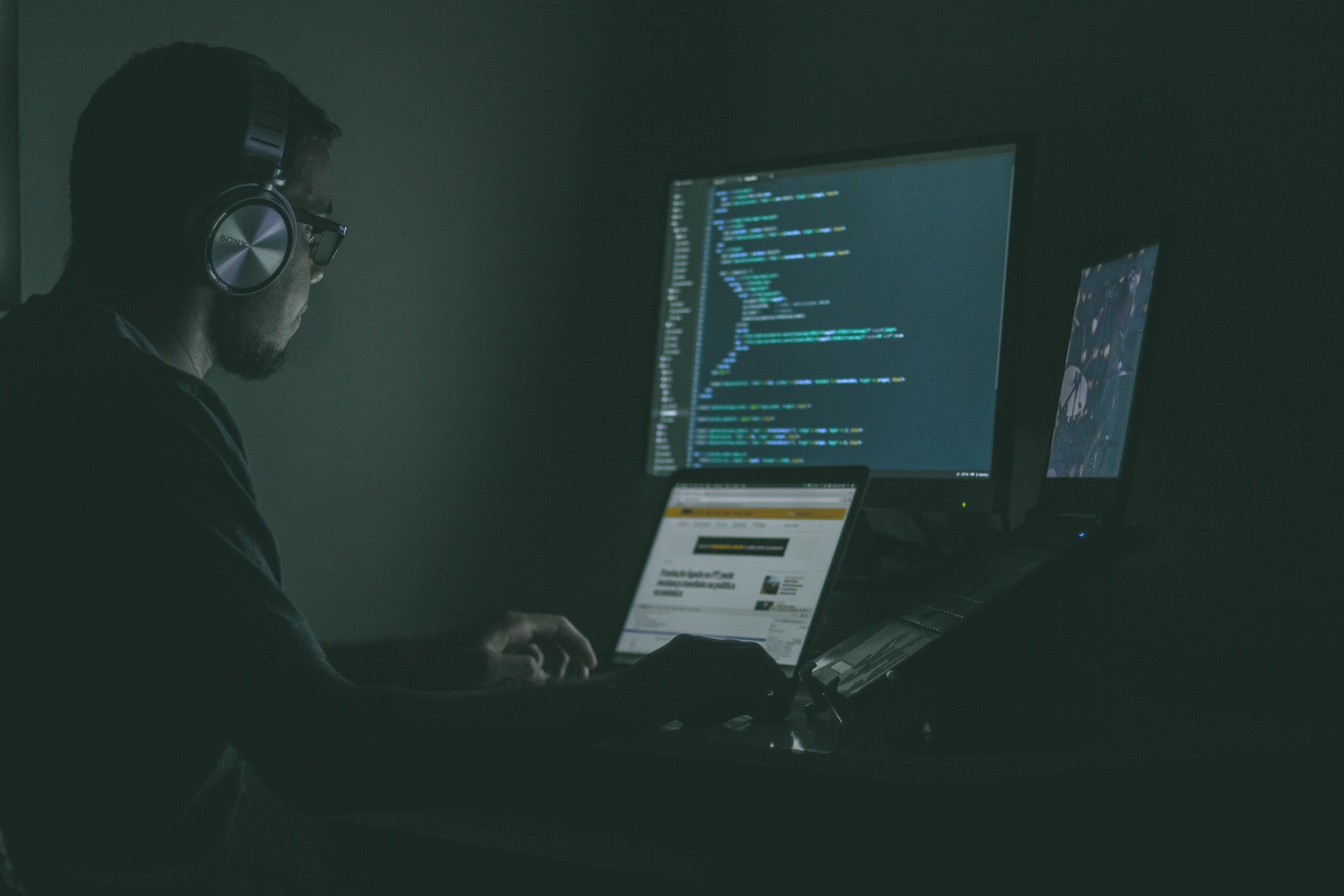Blockchain has gained a lot of popularity in recent years because of the potential that it has been shown to possess. It is finding application in almost every field, but in this webinar, the hosts focus on the education improvement aspects of blockchain.
The webinar is hosted by Karnika Yashwant (Mr. Key)– EnglishForward Co-Founder & CMO, Mitch Rankin – English Forward Co-Founder &CEO and Earl Flormata – Marketing Strategy Expert. All these individuals have vast knowledge in this area and it is interesting to hear them give their perspective.
The first issue of focus is about the skills verification system for education and hiring process. This issue is discussed by Mr. Key and Earl where they offer their perspective. Imagine a situation where you are the human resource manager in a company and you are expected to hire and authenticate the credentials of your potential employees.
Yes, these potential employees have stated in bold they went to Harvard or Yale and graduated from there. This might true or not, but it does not matter right now because they have all the required referees who are vouching for them and the certificates which states that they are qualified. The question now comes about how we can be able to quantify their skills and see if it makes sense of hiring them. Are the skills they have what you are looking for? Are they able to do the job which their curriculum vitae states that they can do?
The truth of the matter is, we can not confidently say that this is the case. With blockchain, however, verification can be made with immutable school records. It also makes it easier for applicants to show their portfolio to potential employers and this increases their chances of being hired.
Educational papers can be kept in the blockchain
Issue two that is discussed is about the collaboration of artistic skills and prevention of piracy. The example given is about the publishers where both Mr. Key and Earl discusses blockchains potential in being able to track your work. Educational papers can also be kept in blockchain and prevent access to unauthorized entities while working on it. It is also easier to verify that you are the owner of the original work because of tokenized timestamps that are provided for you when you keep your work in the blockchain. This means you can realize your full potential when it comes to profiteering from your work.
Emerging economies are also a topic of discussion in the applicability of blockchain technology in the education sector. Mitch mentions the disparity between the education system in the developed and developing world. Having come from both worlds, he offers a perspective that is both personal from experience and very rich in applicability. Mitch is quoted as saying,
Everyone wants a good future and without education, this remains a pipe dream.
The challenges in emerging economies result from discrimination of marginalized groups such as women and minority groups. This means that these people will be disadvantaged at any given time. They will not be given the attention that they need which varies from one individual to another. However, this problem can be rectified with blockchain where one can personalize their learning. It means that one can decide how they want to approach the learning process by choosing methods which maximize their potential.
India was also in focus where every state has around three learning curricula. This has posed a challenge for blockchain developers in standardizing how the education system will be stored in the blockchain. In war-torn countries, use of the blockchain makes records secure and enables transmittance of these records to free countries.
Blockchain certification as a valid qualification
Lastly, the issue about monetization of skills and security of blockchain was brought into focus. All the speakers agreed that the security of the blockchain is very hard to compromise. They agreed that this provides a safer way by which students can access education online and use the blockchain certification as a valid qualification in their job search since it will be very hard to cheat on the skills gained during the learning process.
Monetization of the education system using the blockchain platform is the most difficult thing to do. In fact, Earl notes that,
When the playing field is levelled, people at the bottom benefit the most.
That right there is the problem. The status quo will not let the transition to a blockchain-based system be smooth as they directly benefit from this system. This, therefore, means that a good fight must be fought in trying to move this system away from the few and make it available to everyone.
The webinar was eye-opening and exceeded my expectations. The perspectives offered in this webinar are unheard of. I was not aware of a lot of things that are happening in the tech world and this really put into perspective the speed through which the world is moving to digitalize everything. I was surprised by the number of applications the blockchain has in the education system. It was an hour well spent.







